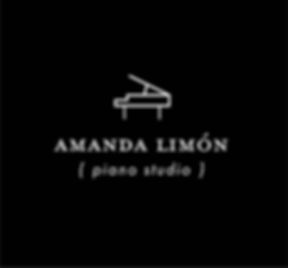
Amanda Limon Piano Studio
Acerca de
What is The Suzuki Method?
( from the https://suzukiassociation.org/about/suzuki-method/)

About The Suzuki Method
Every Child Can Learn
More than fifty years ago, Japanese violinist Shinichi Suzuki realized the implications of the fact that children the world over learn to speak their native language with ease. He began to apply the basic principles of language acquisition to the learning of music, and called his method the mother-tongue approach. The ideas of parent responsibility, loving encouragement, constant repetition, etc., are some of the special features of the Suzuki approach.
Parent Involvement
As when a child learns to talk, parents are involved in the musical learning of their child. They attend lessons with the child and serve as “home teachers” during the week. One parent often learns to play before the child, so that they understand what the child is expected to do. Parents work with the teacher to create an enjoyable learning environment.
Expanded meaning of ‘parent’ to include any caregiver, guardian, grandparent, etc who is supporting the child in the learning process.
Early Beginning
The early years are crucial for developing mental processes and muscle coordination. Listening to music should begin at birth; formal training may begin at age three or four, but it is never too late to begin.
Listening
Children learn words after hearing them spoken hundreds of times by others. Listening to music every day is important, especially listening to pieces in the Suzuki repertoire so the child knows them immediately.
Repetition
Constant repetition is essential in learning to play an instrument. Children do not learn a word or piece of music and then discard it. They add it to their vocabulary or repertoire, gradually using it in new and more sophisticated ways.
Encouragement
As with language, the child’s effort to learn an instrument should be met with sincere praise and encouragement. Each child learns at their own rate, building on small steps so that each one can be mastered. Children are also encouraged to support each other’s efforts, fostering an attitude of generosity and cooperation.
Learning with Other Children
In addition to private lessons, children participate in regular group lessons and performance at which they learn from and are motivated by each other.
Graded Repertoire
Children do not practice exercises to learn to talk, but use language for its natural purpose of communication and self-expression. Pieces in the Suzuki repertoire are designed to present technical problems to be learned in the context of the music rather than through dry technical exercises.
Delayed Reading
Children learn to read after their ability to talk has been well established. in the same way, children should develop basic technical competence on their instruments before being taught to read music.
Interested in reading more about What the Benefits of being a Suzuki Family? visit https://suzukiassociation.org/ to learn more.
Is the Suzuki Method Still Relevant today?
The Suzuki music philosophy remains relevant today because it provides a unique approach to music education that prioritizes the development of the whole child.
The Suzuki Method emphasizes the importance of a nurturing environment, a strong partnership between teacher, student, and parents, and the development of skills that extend beyond music, such as discipline, focus, and self-confidence.
In an era when technology dominates much of our lives and attention spans are increasingly fragmented, the Suzuki Method offers a counterbalance by promoting focused attention, deep listening, and a connection to the natural world through music.
Additionally, the Suzuki Method's emphasis on developing a love and appreciation for music can help counteract the trend towards passive consumption of music and encourage a deeper engagement with musical expression.
Furthermore, the Suzuki Method has proven to be effective in helping students of all ages and backgrounds develop musical proficiency, and its approach to teaching can be adapted to a variety of instruments and musical styles. As such, the Suzuki Method continues to be a relevant and valuable approach to music education for students, teachers, and parents alike.



